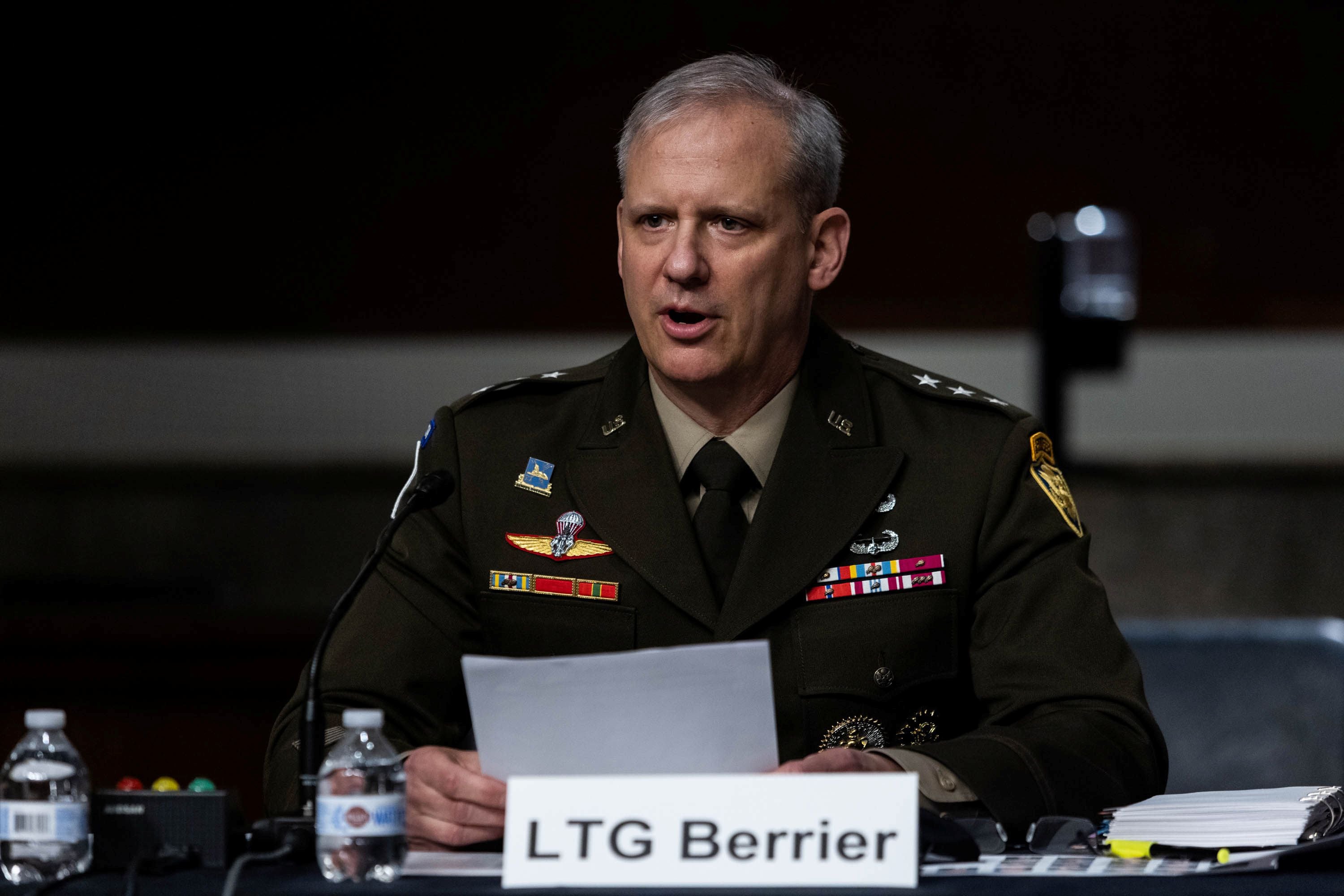
According to a new assessment by the Pentagon's Defense Intelligence Agency, President Vladimir Putin is expected to threaten to use nuclear weapons against the West if Ukraine's tough resistance to the Russian invasion continues, depleting conventional human resources and equipment.
“The prolonged occupation of parts of Ukrainian territory threatens to diminish Russian military labor and reduce its modernized arsenal of weapons, while the ensuing economic sanctions are likely to throw Russia into a prolonged economic depression and diplomatic isolation,” said Lt. Gen. Scott Berrier, director of the Defence Intelligence Agency, in his new 67-page summary on global threats.
The combination of the Ukrainian challenge and economic sanctions will threaten Russia's “ability to produce modern precision guided munitions,” Berrier said in testimony before the House Armed Services Commission for a hearing on Thursday.
“As this war and its aftermath slowly weaken the conventional Russian force,” Berrier added, “Russia will likely increasingly depend on its nuclear deterrence to signal the West and project strength to its internal and external audiences.”
The Pentagon agency's grim assessment of what is at stake in the war comes on the eve of a call between President Joe Biden and Chinese President Xi Jinping. While US officials strive to discern China's position on the war, Biden will seek Xi's help to increase pressure on Moscow to end it.

Putin has already announced that he has put the Russian nuclear arsenal on high alert. The Russian embassy in Washington did not immediately return a request for comment on the Defense Intelligence Agency report.
Unlike a global threat report issued by multiple intelligence agencies last week with findings prior to the Russian invasion, the new report reflects information as of Tuesday.
A senior Pentagon official told reporters on Thursday that the invasion is largely stalled, and that Russia has so far resorted to more than 1,000 long-range missile attacks against Ukraine.
“America's efforts to undermine Russia's objectives in Ukraine, combined with its perception that the United States is a nation in decline, could incite Russia to take more aggressive action not only in Ukraine itself, but also more broadly in its perceived confrontation with the West,” Berrier said.
A key motivation for the invasion, he said, is Russia's determination to “restore a sphere of influence over Ukraine and the other states of the former Soviet Union.”
He added that “despite greater than expected resistance from Ukraine and relatively high losses in the early stages of the conflict, Moscow seems determined to continue using more lethal capabilities until the Ukrainian government is willing to reach favorable terms for Moscow.”
Putin's Order
Berrier said Putin's February order to place Russia's nuclear forces on “special combat duty” refers to “intensified preparations designed to ensure a rapid transition to a higher alert state if the situation requires it.”

In addition to trying to intimidate Russia's adversaries, he said, it reflects “Moscow's doctrinal views on the use of tactical, non-strategic, nuclear weapons to force an adversary” to continue negotiations “that may result in the termination of the conflict on terms favorable to Russia, or deter the entry of others. participants when the Russian offensive progress of its conventional forces seems that it could be reversed or the conflict drags on”.
As for conventional forces, Berrier said that the setbacks suffered by Russia so far in Ukraine call into question Putin's claims about his army's ability to deter or defeat threats with “fifth-generation fighters, state-of-the-art air and coastal defense missile systems, new ships of surface and submarines, advanced tanks, modernized artillery and improved military and logistical command and control”.
With information from Bloomberg
Keep reading:
Últimas Noticias
Debanhi Escobar: they secured the motel where she was found lifeless in a cistern
Members of the Specialized Prosecutor's Office in Nuevo León secured the Nueva Castilla Motel as part of the investigations into the case

The oldest person in the world died at the age of 119
Kane Tanaka lived in Japan. She was born six months earlier than George Orwell, the same year that the Wright brothers first flew, and Marie Curie became the first woman to win a Nobel Prize

Macabre find in CDMX: they left a body bagged and tied in a taxi
The body was left in the back seats of the car. It was covered with black bags and tied with industrial tape
The eagles of America will face Manchester City in a duel of legends. Here are the details
The top Mexican football champion will play a match with Pep Guardiola's squad in the Lone Star Cup

Why is it good to bring dogs out to know the world when they are puppies
A so-called protection against the spread of diseases threatens the integral development of dogs




